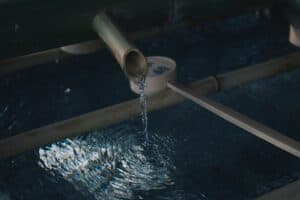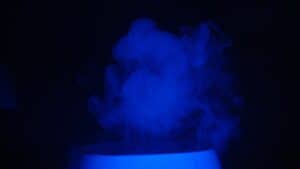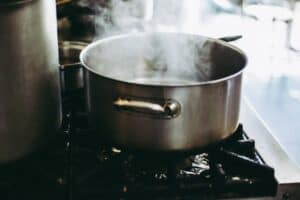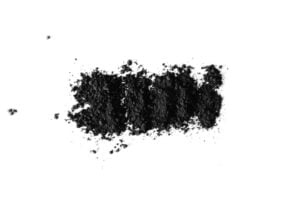Does Decaf Taste Different?

As coffee has become so widely consumed globally, so too has the decaf variant. Whilst so many coffee lovers worldwide love the taste of their favorite cup of joe, not everyone wants or needs that caffeine hit that comes with it.
Therefore, decaf coffee has become very popular in recent years. Coffee consumers have become more health conscious, so understanding how to regulate your caffeine intake is very important. Some people get coffee anxiety or jitters, some have severe caffeine intolerances and some simply want to enjoy their favorite coffee later in the day without the risk of disrupting their sleep.
But, the question that remains on everyone’s lips is, does decaf taste different? After all, surely there must be some downside to drinking caffeine-free coffee.
Due to the way caffeine is extracted from coffee beans, decaf coffee tends to be slightly less strong and a little sourer than regular caffeinated coffee. As a result, many decaf coffee manufacturers will offer their beans in a darker roast, to compensate for the naturally weaker taste.
That being said, this only creates a minor difference in flavor, which tends to be superseded by the roast, flavor profiles, origin, and blend of the coffee itself. So, you shouldn’t be put off from drinking decaf coffee from a taste perspective.
What is Decaf Coffee?
Many people have heard of and tasted decaf coffee in their lives, but few understand what it really is. Decaffeinated coffee starts life as regular, fully caffeinated coffee beans.
Once green coffee beans (or seeds) are grown and harvested, they are washed before being dried and roasted to the desired color. The washing process removes impurities and pesticides, but not any of the caffeine or flavor compounds from the coffee beans themselves.
However, there are actually a few different methods used to physically remove caffeine from coffee beans. These involve either chemicals, a charcoal filter or what’s known as the ‘swiss water’ method. More on these processes later.
The upshot is, caffeine is a soluble compound that can actually be physically removed from coffee beans. This occurs by dissolving away the caffeine itself, leaving behind the decaf coffee we all know and love!
Why Do People Drink Decaf Coffee?
There are many different reasons that people drink decaf coffee. Those that are used to drinking every day may actually struggle to get out of bed without it!
But, it is worth remembering that the caffeine found in coffee is actually a drug. And like any drug, every high must have a low. Eventually, anyone that drinks a lot of coffee will build up a tolerance to caffeine and may actually need to cycle off of it in order to regain the invigorating effect.
Therefore, using decaf coffee as a tool for periodically cycling off of caffeine can prove very beneficial for avid coffee lovers.
However, there are a number of other reasons that people drink decaf coffee, including:
- Caffeine intolerance
- Severe caffeine sensitivity
- Anxiety
- Coffee jitters
- Using alternative caffeine-based substances or medication i.e. pre-workout
- Insomnia
- High blood pressure
- Diarrhoea
- Headaches or migraines
- Acid reflux
- Heartburn
- Dehydration issues.
Any Downsides?
A question you may now have on your mind is, are there any major downsides to drinking decaf coffee? Well, there isn’t any substantial scientific evidence to suggest that decaffeinated coffee causes any health issues. However, the link between cholesterol and decaf coffee has been investigated by multiple academic researchers, suggesting that the two may have a positive correlation. This isn’t necessarily a cause for concern, but if you do have high cholesterol, then it may be worth consulting your doctor before making the hard switch to decaf coffee.
There is also an association between the chemicals used in some methods of removing caffeine from coffee beans and health issues. However, the minuscule dosage of these in decaf coffee means they are unlikely to pose any significant threat to the human body. You can also avoid these chemicals by opting for an only organic decaf coffee that tends to use the most natural, swiss water process for removing caffeine.
Does Decaf Coffee Taste Worse than Regular Coffee?
If you compare regular and decaf coffee, you generally won’t taste much of a difference between the two.
Coffee-tasting experts may well distinguish a slightly less potent strength from certain decaf coffee brands, along with some sour undertones. Again, these are so subtle that someone that is just having the odd cup of decaf wouldn’t notice any difference.
Therefore, decaf coffee in itself definitely doesn’t taste worse than regular caffeinated coffee.
However, it may be slightly less strong and will definitely be less acidic than traditional caffeinated coffee. This doesn’t necessarily alter the taste of flavor, but it can impact the mouthfeel and after-effects of the coffee once you’ve drunk it. Many brands will try to combat this by offering a darker roast or a more earthy, smoky, or pungent fruity flavor to draw your attention away from the lack of caffeine.
So, here are a few factors that set decaf coffee apart from regular caffeinated coffee.
The Decaffeination Process
As mentioned earlier, there are a few different methods for decaffeinating coffee. Here is a brief overview of each.
Swiss Water

Green coffee beans are soaked in purified water, along with coffee extract to maintain the strong coffee aromas and flavors. This mixture is then passed through a charcoal filter, which allows the caffeine molecules to bind to the activated charcoal.
Pure, flavourful, 99% caffeine-free coffee beans are left behind and are ready to be roasted!
The Swiss Water method is generally considered the cleanest, most natural way to remove caffeine from coffee. It is preferred by the majority of high-quality, organic decaf coffee bean manufacturers.
Direct Solvent

The direct solvent decaffeination method involves submerging softened coffee beans into a chemical solution. The most commonly used substance for this process is ethyl acetate, but methylene chloride also works in a similar way.
The green coffee beans are put into this chemical solution and left to soak for 10-12 hours. They are then removed and washed to ensure they are clean for roasting.
Indirect Solvent

A more complicated but arguably ‘cleaner’ method of removing caffeine is the indirect solvent method. Unroasted coffee beans are boiled vigorously to remove all of the soluble oils and substances from them. This includes caffeine as well as flavor-producing molecules. The beans are then removed and drained from the hot water and set aside.
Methyl chloride is then added to the boiling water-based solution that now contains caffeine. This chemical then binds to the caffeine and evaporates away, leaving behind a flavourful coffee soup!
The drained coffee beans are then added back to the soup so they can reabsorb their original flavors.
Although chemicals are used, they technically never come into contact with the coffee beans themselves, hence the name ‘indirect solvent’.
Supercritical Carbon Dioxide

This space-age technique involves adding coffee beans to a highly pressurized vessel containing carbon dioxide. Under intense levels of pressure, carbon dioxide becomes a liquid-like state which extracts the caffeine from the coffee beans themselves.
After around 12 hours, the carbon dioxide solution is filtered out of the container using, again, an activated charcoal filter. This CO2 also contains caffeine from the coffee beans.
If you are looking for even more information about the coffee decaffeination process, here is a full, in-depth look at how coffee is decaffeinated.
Lower Acidity
Decaf coffee differs from regular caffeinated coffee due to its lower levels of acidity. The decaffeination process strips away many of the acidic substances in regular coffee beans, most notably phenolic acid.
This is perfect for those that suffer from acid reflux or heartburn, as switching to decaf coffee tends to calm both of these conditions down.
Dark Roast
Another key difference between decaf and regular coffee is that many manufacturers will roast their beans longer to give them a darker color. This is not always the case, as high-end coffee producers can pretty accurately replicate the taste of their medium and even light roast bean blends in decaf form.
However, in order to make up for the lack of acidity and slightly weaker strength, dark roasts are pretty popular in the decaf coffee space. This helps give them a more punchy flavor to compensate for the lack of caffeine.
Summary
Overall, decaf coffee is a great option for coffee lovers that want to lower their overall caffeine intake. Many people love the taste of coffee but are more conscious about their health, so want to limit the number of caffeinated drinks they consume in a day.
Decaf coffee is therefore a great tool for regular caffeine intake and typically doesn’t come at any cost in terms of taste. The majority of high-end coffee brands can replicate their most popular beans in decaf form without them tasting any different. Whilst some coffee aficionados may pick up very subtle differences such as lower acidity, less potent flavor, or a touch more sourness, the recreational coffee lover would be hard-pressed to notice these.
Decaf Coffee Taste Frequently Asked Questions
No, not at all. There are more processes involved in transforming regular, caffeinated coffee beans into decaf beans. However, this does not mean the beans themselves are any lesser quality than normal coffee beans containing caffeine, they have simply had their caffeine removed.
Some chemical-based processes may strip away some of the flavor compounds from the original coffee beans, but this is usually associated with lower-quality decaf coffee.
The best quality decaf coffee tends to be organic, and comes from trusted roasters and coffee houses, using top-quality ingredients and natural decaffeination processes. Look out for Swiss water process decaf coffee, as this uses no chemicals and removes 99% of the caffeine from coffee beans.



